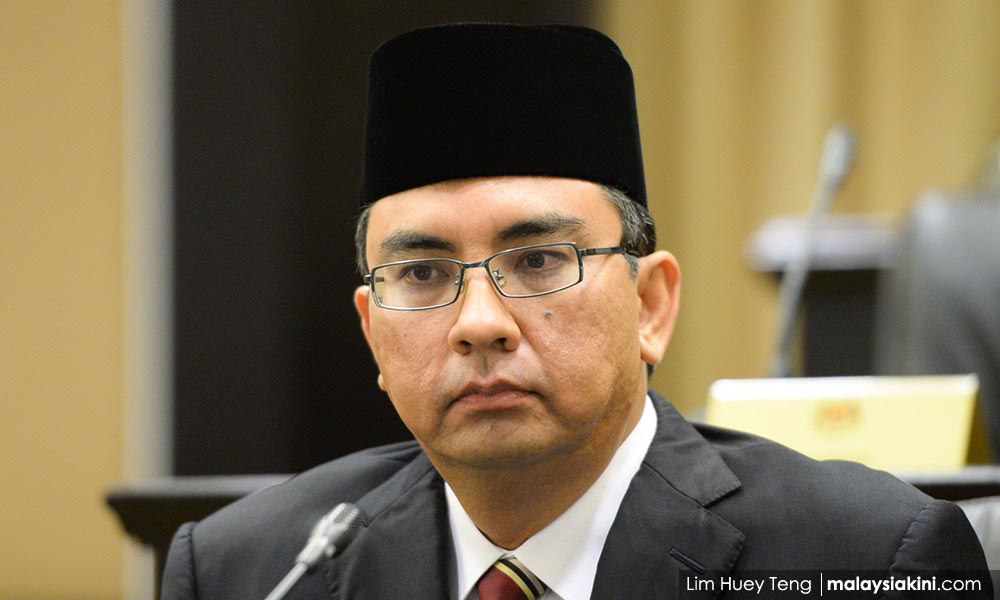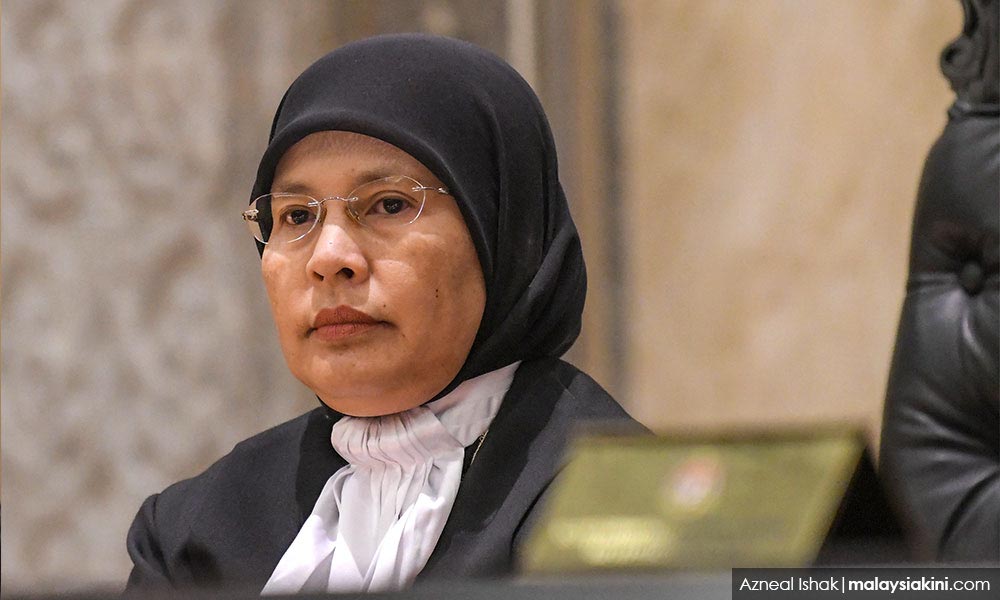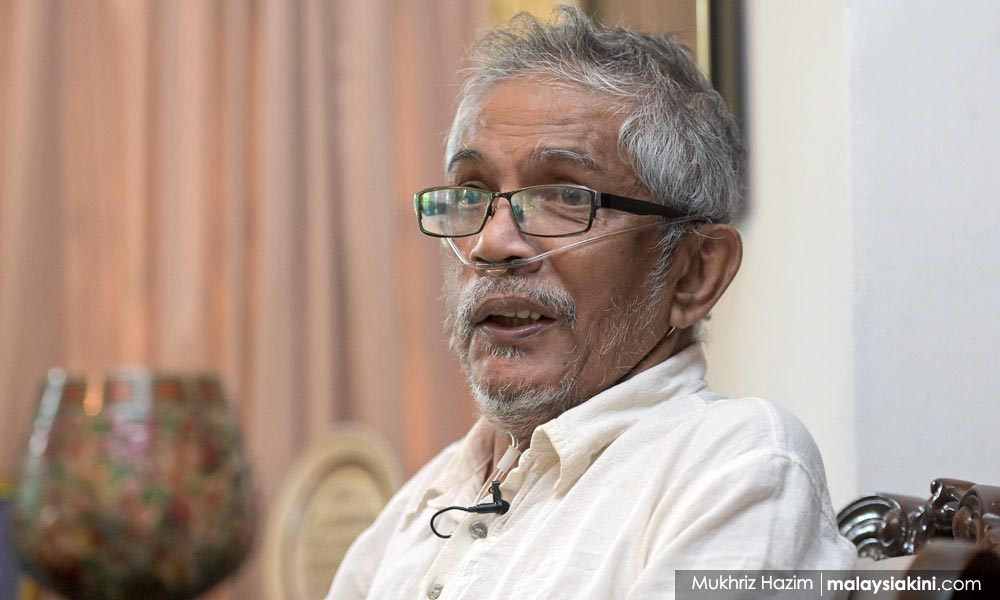By Hidir Reduan Abdul Rashid | Malaysiakini

The Federal Court has reserved its decision over the constitutional issues linked to the MACC probe against sitting Court of Appeal judge Mohd Nazlan Mohd Ghazali.
A seven-person apex bench chaired by Chief Justice Tengku Maimun Tuan Mat would later set a date to deliver their judgment over the constitutional referral application by Haris Ibrahim and two other lawyers.
Earlier today, the panel — presided also by Chief judge of Sabah and Sarawak Abang Iskandar Abang Hashim as well as Federal Court judges Mohamad Zabidin Mohd Diah, P Nallini, Vernon Ong Lam Kiat, Harmindar Singh Dhaliwal, and Rhodzariah Bujang — heard oral submissions from legal teams for the three applicants as well as the three respondents.
The three respondents are MACC and its Chief Commissioner Azam Baki as well as the federal government.
Counsel Malik Imtiaz Sarwar appeared for Haris as well as the two other lawyers — Nur Ain Mustapha and Sreekant Pillai, while senior federal counsel Liew Horng Bin represented the MACC, Azam, and the federal government.
Lawyer New Sin Yew appeared for the Malaysian Bar as amicus curiae (Latin maxim meaning friend of the court, who assists the court in arriving at a decision over constitutional issues).
At the centre of the application are the issues of whether criminal investigating bodies can initiate criminal court proceedings against a serving judge of the superior courts, and whether the prosecution can initiate criminal court proceedings against such a judge.
On July 19, the Kuala Lumpur High Court allowed Haris, Nur Ain, and Sreekant to refer the constitutional issues to the apex court.
The three legal practitioners sought the apex court’s answer to the referral questions in order to resolve their related main legal action pending before the High Court.

On May 6 before the lower court, the three lawyers filed an originating summons over the Nazlan probe.
Haris had recently disclosed that he has Stage 4 lung cancer and might have only a year left to live.
However, that has not stopped him from fighting for what he believes in.
The legal practitioners seek to declare that the MACC was not entitled to investigate judges unless they have been suspended or removed.
It also seeks a declaration that a public prosecutor is not empowered to institute or conduct any proceedings for an offence on serving judges of a court and that investigation against Nazlan were unconstitutional.
Alleged links to 1MDB
The MACC has confirmed it had opened an investigation paper on Nazlan on April 23, following a report lodged by Persatuan Sahabat Ulul Amri Malaysia based on allegations contained in former Goldman Sachs banker Tim Leissner’s testimony in a US court.
According to the group, Leissner’s testimony linked Nazlan to 1MDB’s deal involving Tanjung Energy Holdings Sdn Bhd in 2012.
At the material time, Nazlan was part of Maybank. He joined the judiciary in 2017 as a judicial commissioner.
Former Prime Minister Najib Abdul Razak’s legal team has also tried to discredit Nazlan by claiming that he had a conflict of interest in the 1MDB case.

Nazlan, when he was a High Court judge in 2020, sentenced Najib to 12 years in prison and RM210 million for corruption, abuse of power, and money laundering.
The Court of Appeal upheld the decision last year. On Aug 23 this year, the Federal Court dismissed Najib’s appeal, leading to the former finance minister currently serving a custodial term at Kajang Prison.
Separation of powers breached
The trio of lawyers claimed MACC’s investigation into Nazlan was a breach of the separation of powers between the executive branch and the judiciary.
They claimed that the federal government and Attorney General agreed with MACC’s conduct due to their silence on the graft buster’s assertions that it is entitled to investigate the Court of Appeal judge.

The MACC previously said it had the power to investigate all public officers, including judges.
It added that in line with the principle of separation of powers, MACC would submit the investigation paper to the Attorney General’s Chambers (AGC) when completed to decide whether to press charges or otherwise.
The MACC said that they had investigated judges in the past and all the investigation papers were submitted to the AGC for evaluation.
In September, the anti-graft watchdog was reported to have completed its investigation paper against Nazlan and awaiting further instruction from AGC.



